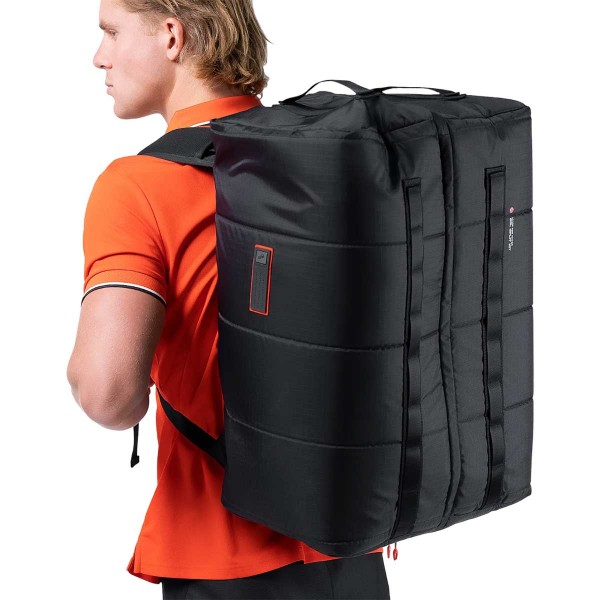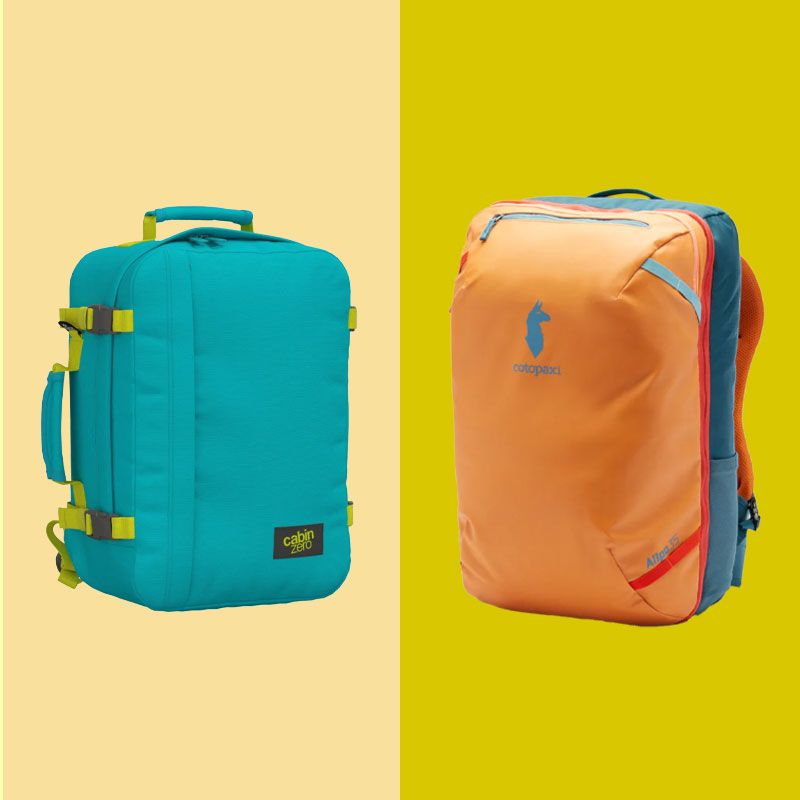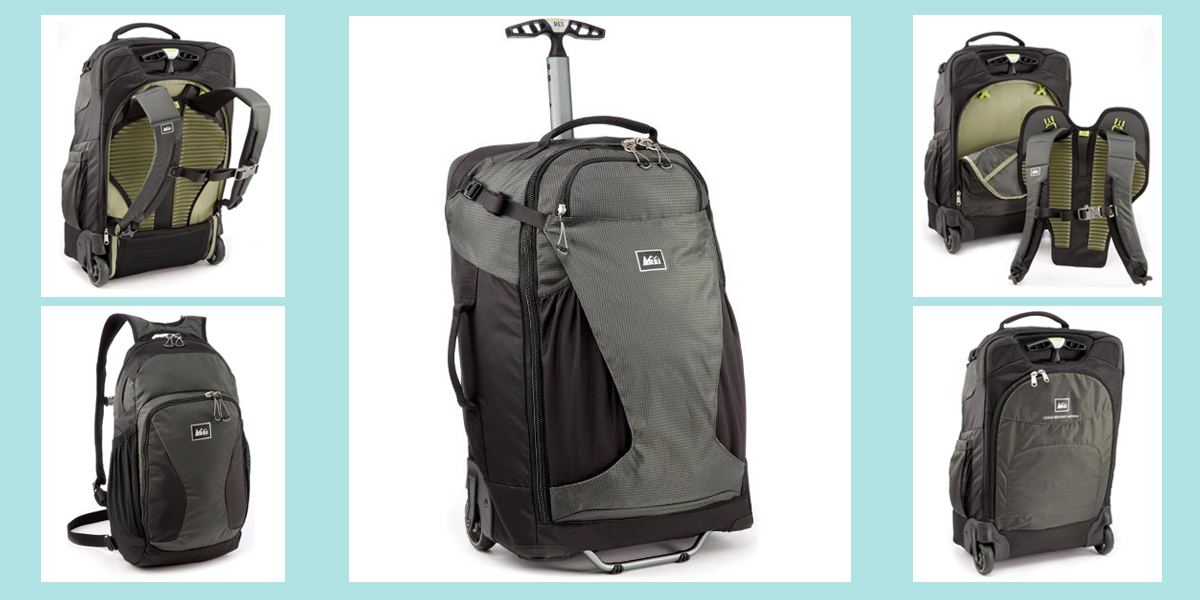The Ultimate Showdown: Rucksack vs. Suitcase – Which Reigns Supreme for Your Travels?
Embarking on a journey, whether it’s a whirlwind weekend getaway or an extended exploration of far-flung lands, necessitates careful consideration of your most crucial companion: your luggage. The age-old debate between the versatile rucksack and the classic suitcase often leaves travelers pondering which option best suits their needs. This in-depth analysis delves into the nuances of each, dissecting their strengths and weaknesses to empower you to make an informed decision and travel with unparalleled ease and efficiency.
Understanding the Contenders: Rucksack and Suitcase Defined
Before we delve into a detailed comparison, let’s establish a clear understanding of what each entails:
Rucksack (or Backpack): Characterized by its two shoulder straps and soft-sided construction, the rucksack is designed to be carried on your back, distributing weight evenly across your shoulders and hips. They come in a vast array of sizes and designs, from compact daypacks to voluminous expedition packs. The emphasis is typically on portability and hands-free convenience.
Suitcase: Traditionally a rigid or semi-rigid rectangular container with a handle and wheels (in modern iterations), the suitcase is primarily designed to be rolled along flat surfaces. Its structured form offers better protection for delicate items and often facilitates more organized packing.
The Advantages of Choosing a Rucksack
The rucksack shines in situations where mobility and adaptability are paramount. Its inherent design offers several key advantages:
Unparalleled Portability and Hands-Free Convenience: This is arguably the rucksack’s greatest strength. Navigating crowded airports, bustling train stations, uneven cobblestone streets, or hiking scenic trails becomes significantly easier when your luggage is securely strapped to your back, leaving your hands free for maps, tickets, or simply enjoying the view.
Superior Maneuverability in Diverse Environments: Unlike wheeled suitcases that struggle on anything other than smooth surfaces, a rucksack allows you to traverse stairs, escalators, sandy beaches, and unpaved paths with relative ease. This makes it the ideal choice for adventurous travelers and backpackers exploring off-the-beaten-path destinations.
Even Weight Distribution for Comfort: When packed correctly, a good rucksack distributes weight across your strong back and hip muscles, making it more comfortable to carry heavier loads for extended periods compared to dragging a weight on one arm. Features like adjustable straps, padded hip belts, and sternum straps further enhance comfort and stability.
Versatility in Size and Design: Rucksacks come in an astonishing range of sizes, from small daypacks for essentials to massive expedition packs capable of carrying gear for weeks in the wilderness. Their soft-sided construction often allows for some degree of overpacking and flexibility in fitting into tight spaces.
Ideal for Active Travel and Outdoor Adventures: Whether you’re hiking, camping, backpacking, or engaging in other outdoor activities, a rucksack is the obvious choice for carrying your necessary gear and supplies comfortably and securely.
The Advantages of Opting for a Suitcase
The suitcase, with its structured form and rolling capability, offers its own distinct set of benefits, particularly for certain types of travel:
Effortless Transportation on Smooth Surfaces: The primary advantage of a wheeled suitcase is the ease with which it can be moved across flat, even surfaces like airport terminals and hotel lobbies. This significantly reduces physical strain, especially when dealing with heavier loads.
Enhanced Protection for Fragile Items: The rigid or semi-rigid construction of many suitcases provides a greater degree of protection for delicate belongings such as electronics, glassware, and formal attire, minimizing the risk of damage during transit.
Organized Packing and Easy Access: The rectangular shape and often compartmentalized interior of suitcases facilitate more structured and organized packing. It’s generally easier to lay clothes flat, minimizing wrinkles, and to access specific items without disturbing the entire contents.
Professional Appearance for Business Travel: For business trips, a sleek and professional-looking suitcase often conveys a more polished image compared to a rucksack. It aligns better with formal business settings and makes navigating corporate environments seamless.
Larger Capacity for Bulkier Items: While rucksacks can be quite spacious, suitcases, particularly larger checked baggage options, often offer a greater overall capacity for carrying bulky items or a larger volume of belongings.
Factors to Consider When Making Your Choice
The “best” choice between a rucksack and a suitcase ultimately depends on a multitude of factors specific to your individual travel style and the nature of your trip. Consider the following:
Type of Trip: Is it a backpacking adventure through Southeast Asia, a city break in Europe, a business trip, or a relaxing beach vacation? The destination and activities will heavily influence your luggage needs.
Duration of Travel: A short weekend trip might necessitate a smaller carry-on rucksack or suitcase, while an extended journey will likely require a larger capacity option.
Transportation Methods: Will you be primarily flying and staying in hotels with smooth floors, or will you be navigating public transport, cobblestone streets, and potentially uneven terrain?
What You Need to Pack: Are you carrying delicate electronics or formal wear that requires protection, or are your belongings mostly soft clothing and travel essentials?
Your Physical Capabilities: Consider your strength and stamina. Carrying a heavy rucksack for extended periods might not be suitable for everyone.
Budget Considerations: Both rucksacks and suitcases come in a wide range of prices, depending on the brand, materials, and features.
Personal Preference: Ultimately, your comfort and personal style play a significant role in your decision.
The Hybrid Approach: Combining the Best of Both Worlds?
For some travelers, the ideal solution might lie in a hybrid approach. Consider using a carry-on sized rucksack for shorter trips or as a versatile companion to a larger checked suitcase. Some innovative luggage designs even incorporate features of both, such as rucksacks with hidden wheels and extendable handles, or soft-sided suitcases with comfortable backpack straps.
Conclusion: Selecting Your Perfect Travel Companion
In the final analysis, there is no definitive “winner” in the rucksack vs. suitcase debate. Both offer distinct advantages and cater to different travel styles and needs. By carefully evaluating the nature of your trip, your packing requirements, and your personal preferences, you can confidently choose the luggage that will serve as your most reliable and efficient travel companion, ensuring a smoother, more enjoyable journey from departure to destination and beyond. Whether you opt for the rugged versatility of a rucksack or the refined convenience of a suitcase, the key is to select the option that empowers you to explore the world with comfort and confidence.





